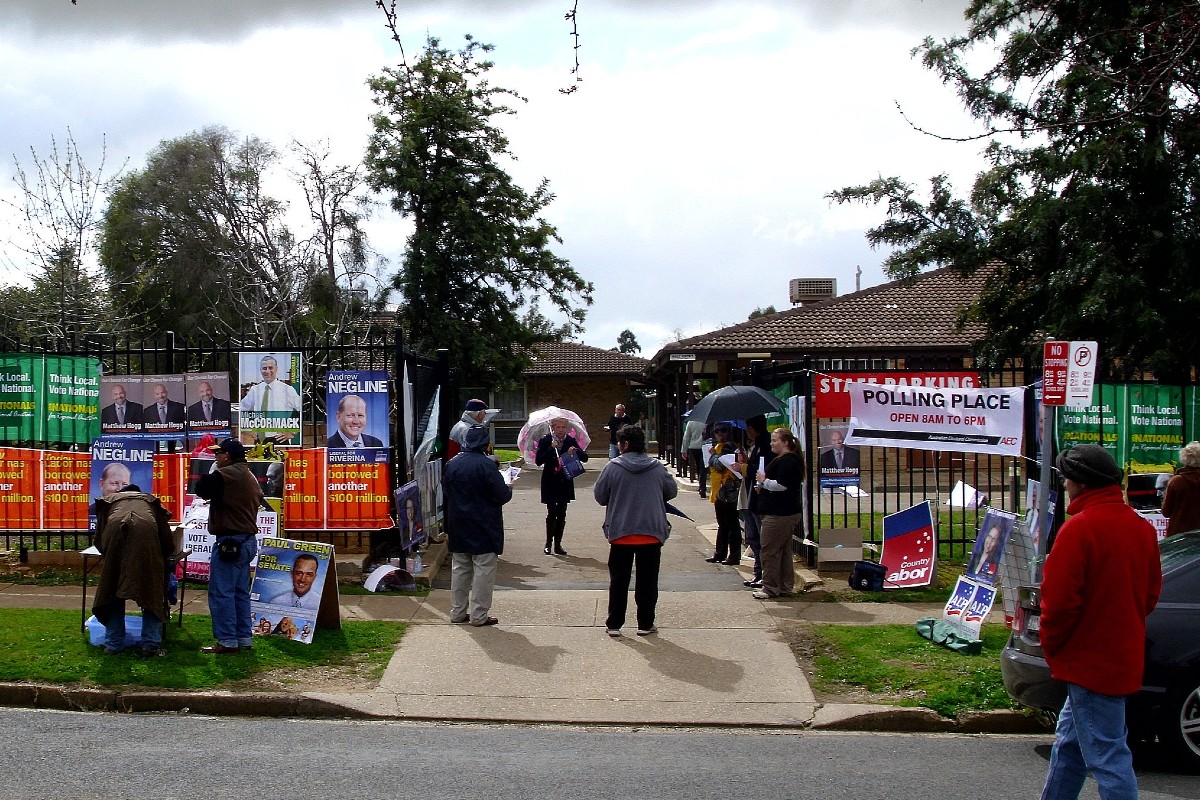By Elliott Brack
Editor and Publisher, GwinnettForum
AUG. 22, 2023 | At first blush, the Australian way of voting in local, state and national elections seems unusual to most Americans. In Australia, voting is mandatory, and in general, about 90 percent of its people vote.
![]() Those who do not vote are issued a fine for not voting, which varies from state to state.
Those who do not vote are issued a fine for not voting, which varies from state to state.
The American choice to vote the way we want, and for whom we want, and even an individual’s right not to vote, seems central to our freedom. The 2020 presidential election had the highest voter turnout of the 21st century, with 67 percent of citizens 18 years and older voting in the election, according to the U.S. Census Bureau.
A total of 21 countries had compulsory voting laws as of January 2023, having much higher turnout (high 80’s vs. mid 60’s). That would include Argentina, Belgium, the Congo, Ecuador, Panama, the Philippines, Spain, Switzerland, and Turkey.
Back to Australia: if you don’t vote, your fine varies from state to state. It’s $55 in the state of New South Wales; $104 in South Australia, but only $20 in Western Australia.
If you do not vote in the state of Victoria, you will be issued with an “apparent failure to vote’” notice which must be responded to within 28 days with details explaining that you did actually vote, or that you had a valid and sufficient excuse for not doing so.
After this period, if you do not respond, or your reason is not deemed valid and sufficient, you will have 28 days to pay the fine of $92.
You may appeal your failure to vote with adequate reason, such as being out of the country.
Failure to pay a voting fine can result in the suspension or cancellation of your driver license, cancellation of the registration of your vehicle, or enforcement through the court by way of a property seizure order.
Whew! Australians take voting seriously!
What are the results of mandatory voting in Australia? By and large, it means that the outcome of voting by most everyone is a centrist approach. The extremists never win.
The minorities, which control much of the issues in American politics, never win in Australia. You end up with center-left, or center-right, government. There is little chance that minorities control the direction of the country.
Australia also has a ministerial governmental form, with the head of the majority party in the House of Representatives becoming prime minister. That excludes any extremist politician taking control of government.
What if Americans had compulsory, mandatory voting at all levels of government. Would our elections be any different?
- Would more people vote?
- Would we see less influence of our many minorities?
- Would issues like gun control, civil rights, medical care and abortions play less of a role?
- Would defense spending be more controlled?
- Would our political parties be more centrist?
- Would we get better candidates?
- (You can ask your own questions).
But the main question would be: would our American system of government be better if we required everyone over age 18 to register to vote, and to penalize those who did not vote?
Would Congress ever make such a move? We doubt it. But it might be worth a try.
How about that name? Since we have been writing about Australia, did you catch the name of the Aussie women’s soccer team? It’s “The Matildas!” How fitting!
- Have a comment? Send to: elliott@brack.net










Follow Us